The Intelligence of Plants
16 Oct 2021 - 30 Jan 2022
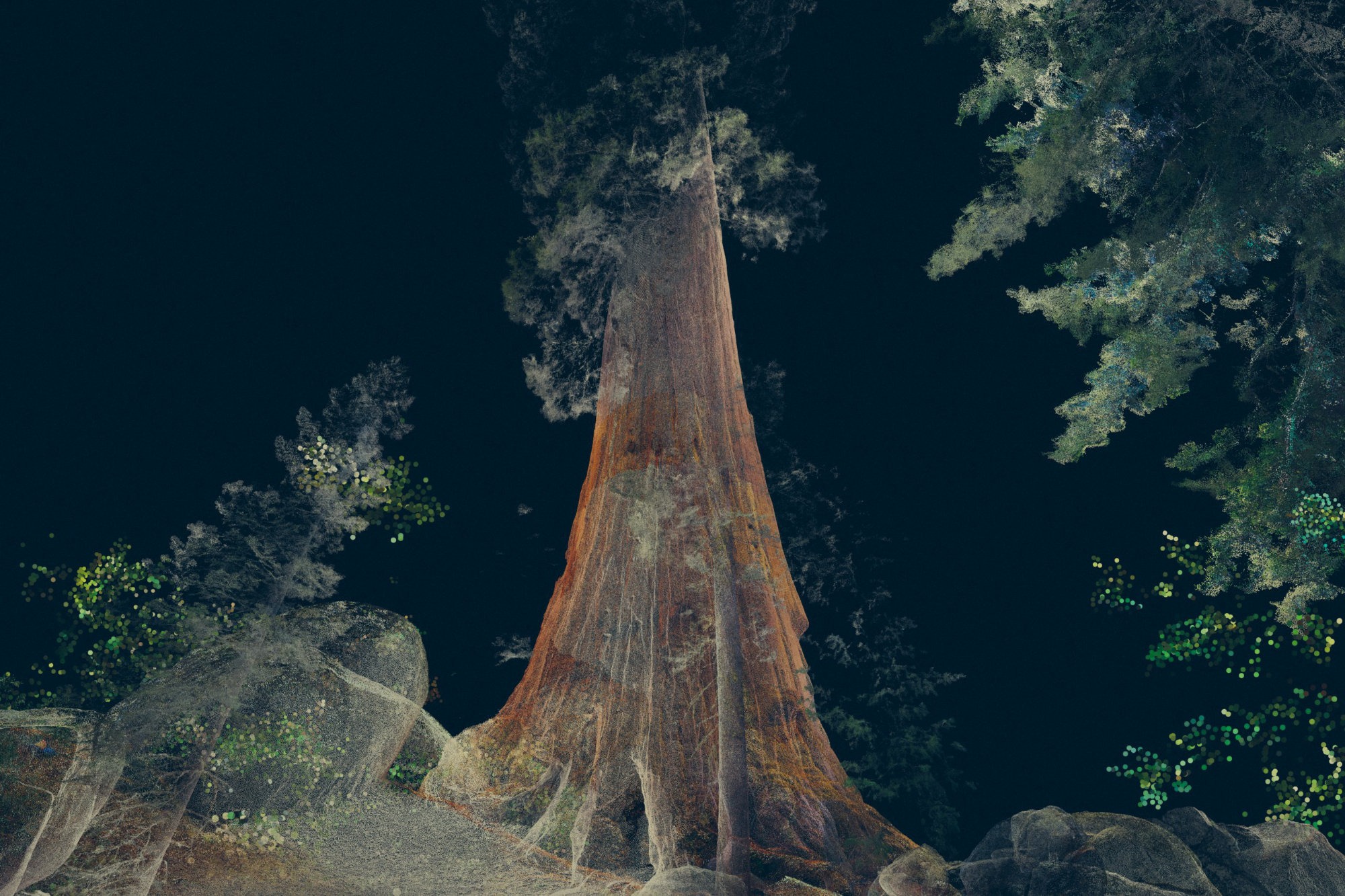
Marshmallow Laser Feast
Treehugger - Wawona
2017
Filmstill
©Marshmallow Laser Feast
Courtesy: Marshmallow Laser Feast
Treehugger - Wawona
2017
Filmstill
©Marshmallow Laser Feast
Courtesy: Marshmallow Laser Feast
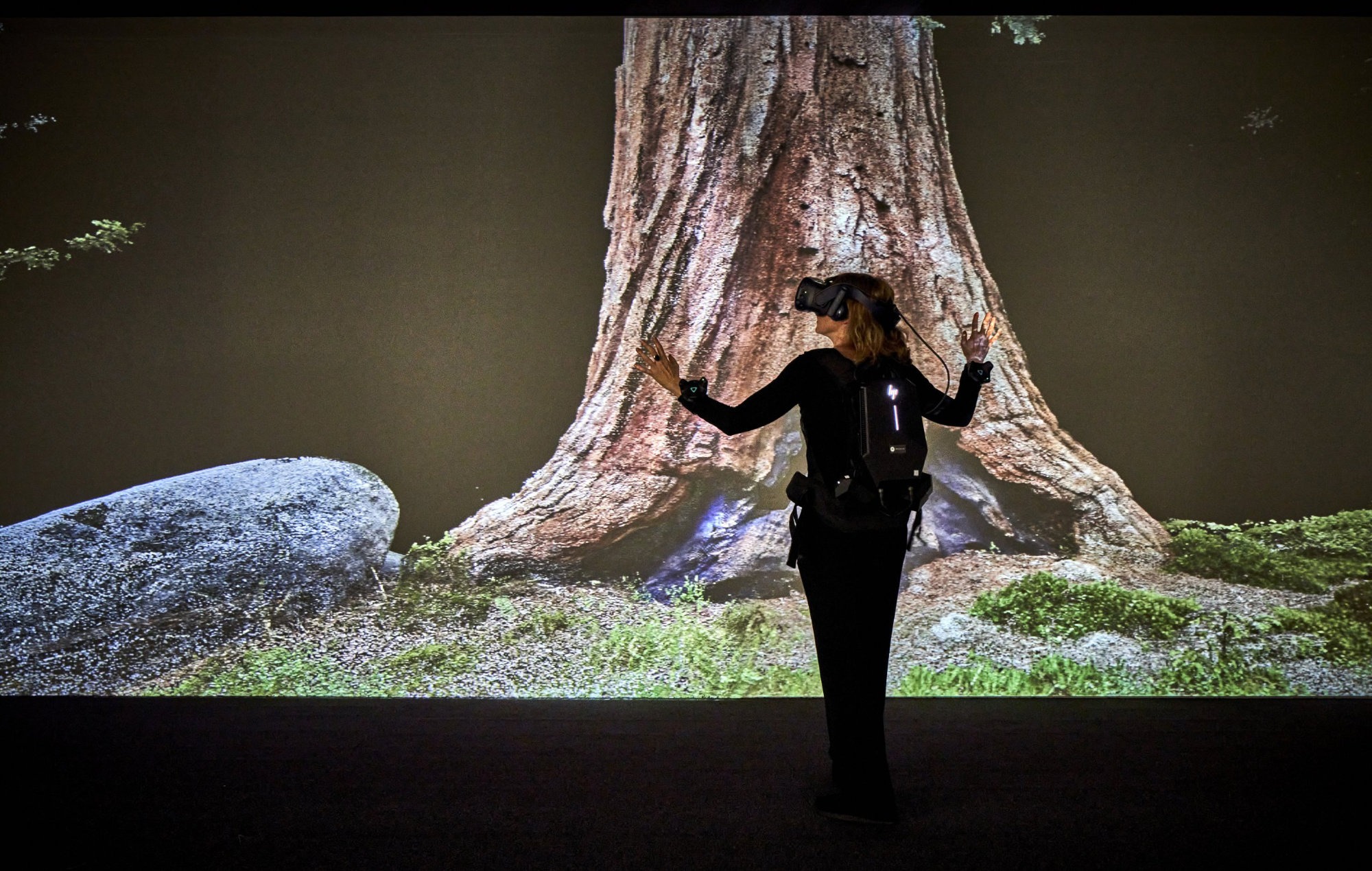
Marshmallow Laser Feast
Treehugger: Wawona
2017
Ausstellungsansicht Frankfurter Kunstverein 2021
Photographer: Norbert Miguletz
©Frankfurter Kunstverein
Courtesy: Marshmallow Laser Feast
Treehugger: Wawona
2017
Ausstellungsansicht Frankfurter Kunstverein 2021
Photographer: Norbert Miguletz
©Frankfurter Kunstverein
Courtesy: Marshmallow Laser Feast
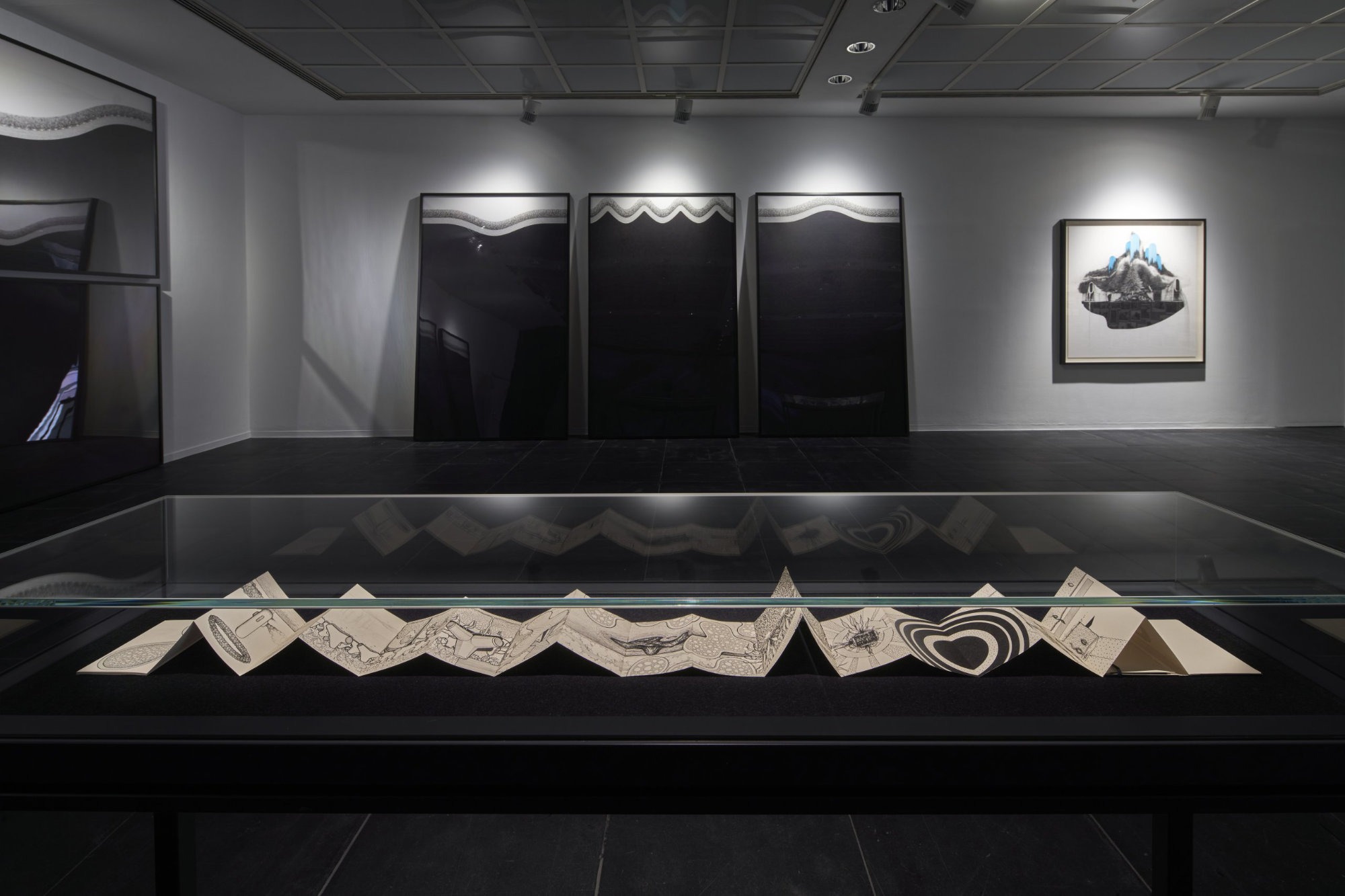
Nicola Toffolini
Ausstellungsansicht Frankfurter Kunstverein 2021 mit den Werken „Architetture Utopiche” (2019 – fortlaufend), „Sezione B#03, B#04, B#02” (2020), „Pòst #01” (2020)
2021
Photographer: Norbert Miguletz
©Frankfurter Kunstverein
Courtesy: the artist and Galleria D406 disegno contemporaneo, Modena
Ausstellungsansicht Frankfurter Kunstverein 2021 mit den Werken „Architetture Utopiche” (2019 – fortlaufend), „Sezione B#03, B#04, B#02” (2020), „Pòst #01” (2020)
2021
Photographer: Norbert Miguletz
©Frankfurter Kunstverein
Courtesy: the artist and Galleria D406 disegno contemporaneo, Modena
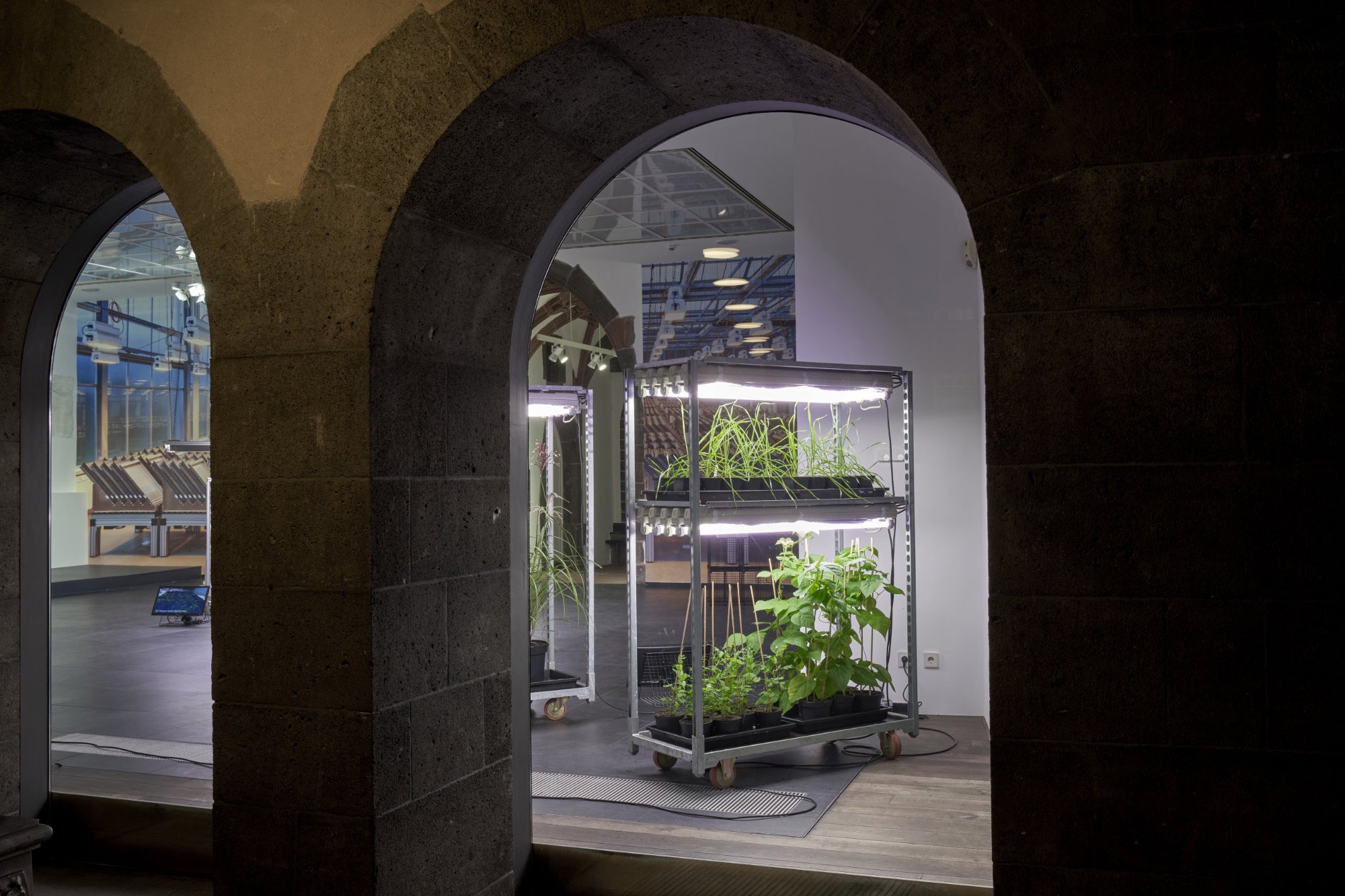
Forschungszentrum Jülich
Pflanzengestell
2021
Ausstellungsansicht Frankfurter Kunstverein 2021, Rhizotronen Leihgabe von IBG-2, Forschungszentrum Jülich, Eigenentwicklung
Photographer: Norbert Miguletz
©Frankfurter Kunstverein
Pflanzengestell
2021
Ausstellungsansicht Frankfurter Kunstverein 2021, Rhizotronen Leihgabe von IBG-2, Forschungszentrum Jülich, Eigenentwicklung
Photographer: Norbert Miguletz
©Frankfurter Kunstverein
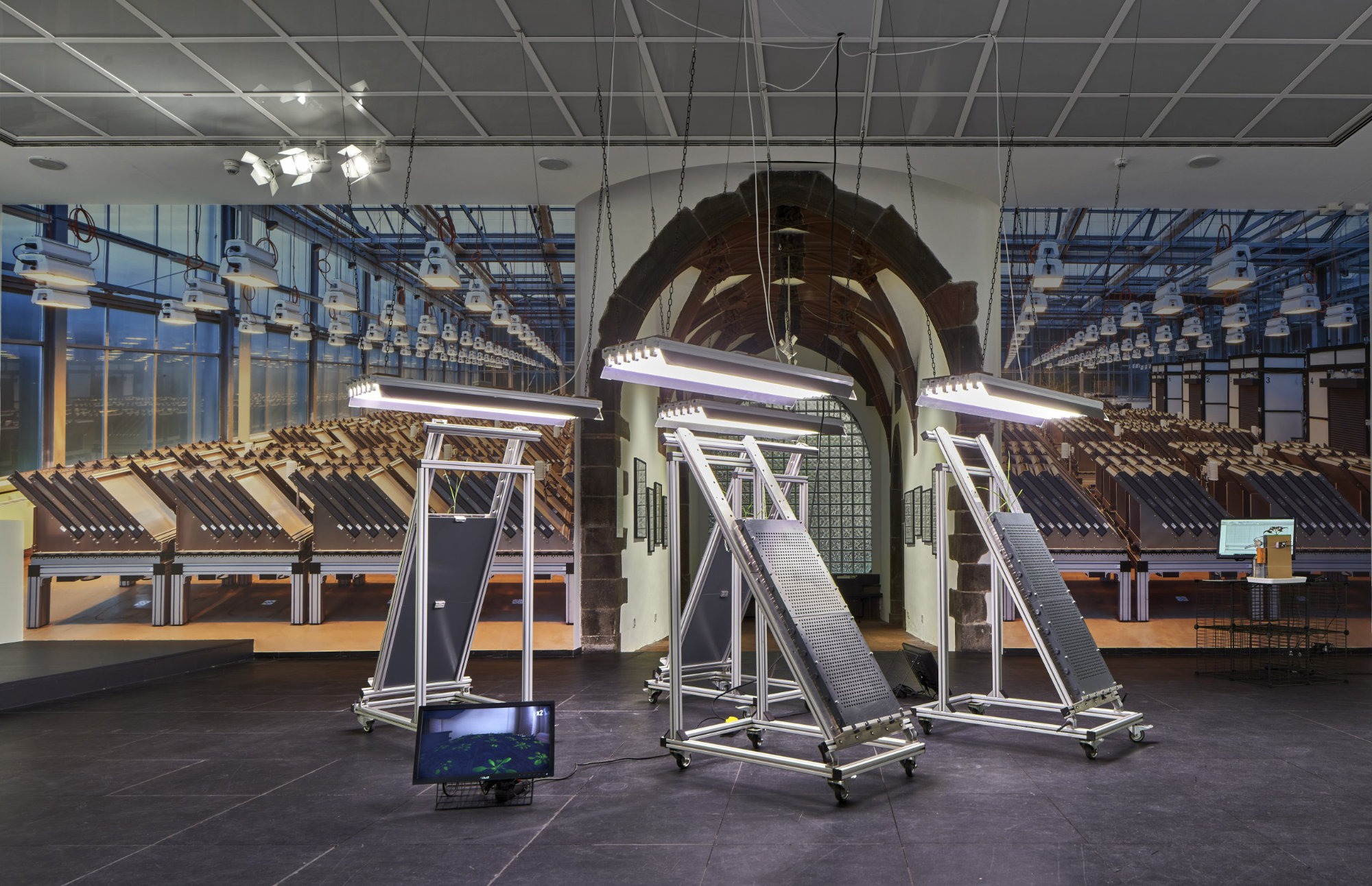
Forschungszentrum Jülich
Rhizotronen
2021
Ausstellungsansicht Frankfurter Kunstverein 2021, Rhizotronen Leihgabe von IBG-3, Forschungszentrum Jülich, Eigenentwicklung
Photographer: Norbert Miguletz
©Frankfurter Kunstverein
Rhizotronen
2021
Ausstellungsansicht Frankfurter Kunstverein 2021, Rhizotronen Leihgabe von IBG-3, Forschungszentrum Jülich, Eigenentwicklung
Photographer: Norbert Miguletz
©Frankfurter Kunstverein
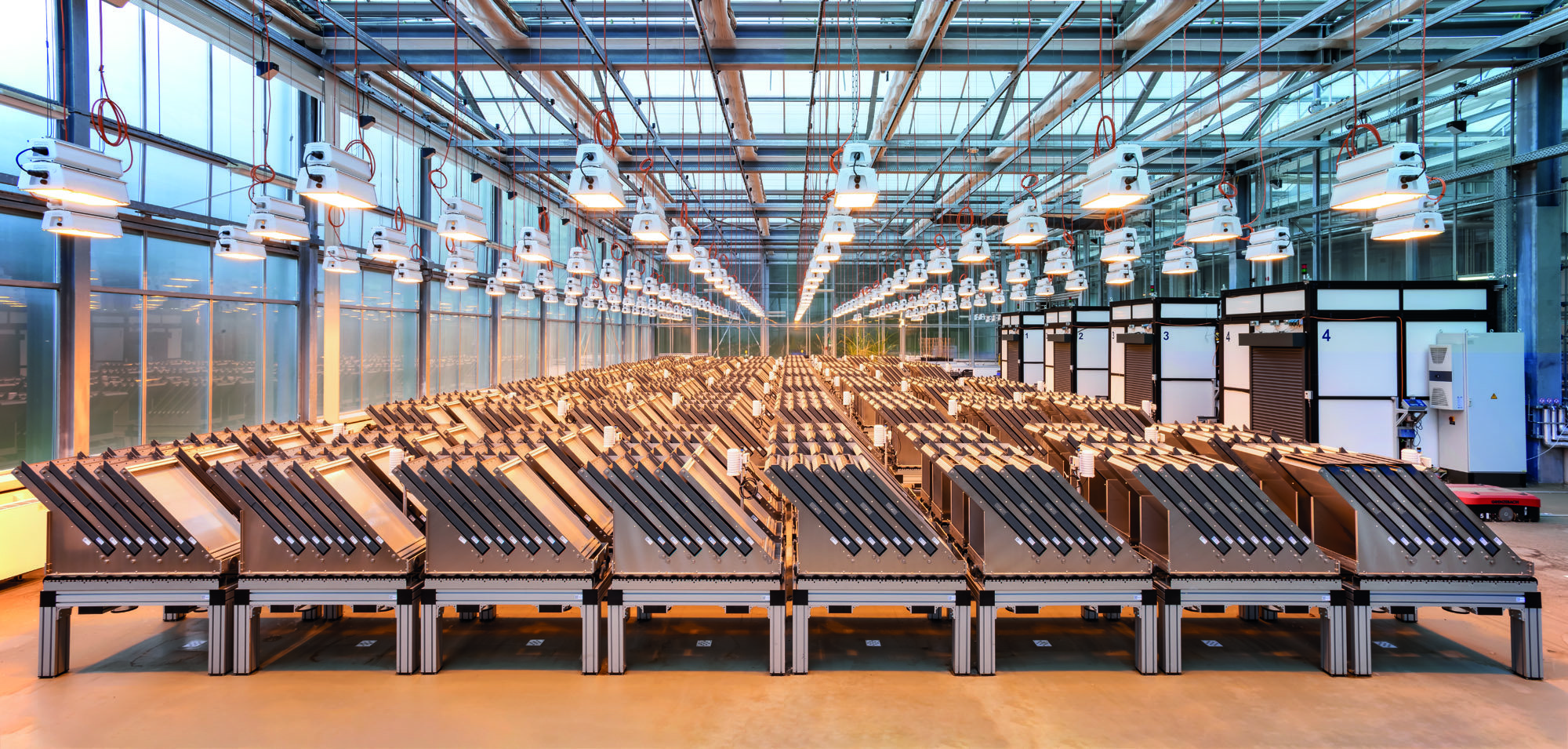
Pflanzenversuchsgewächshaus
2021
Photographer: Ralf-Uwe Limbach
©Forschungszentrum Jülich
Courtesy: Forschungszentrum Jülich
2021
Photographer: Ralf-Uwe Limbach
©Forschungszentrum Jülich
Courtesy: Forschungszentrum Jülich
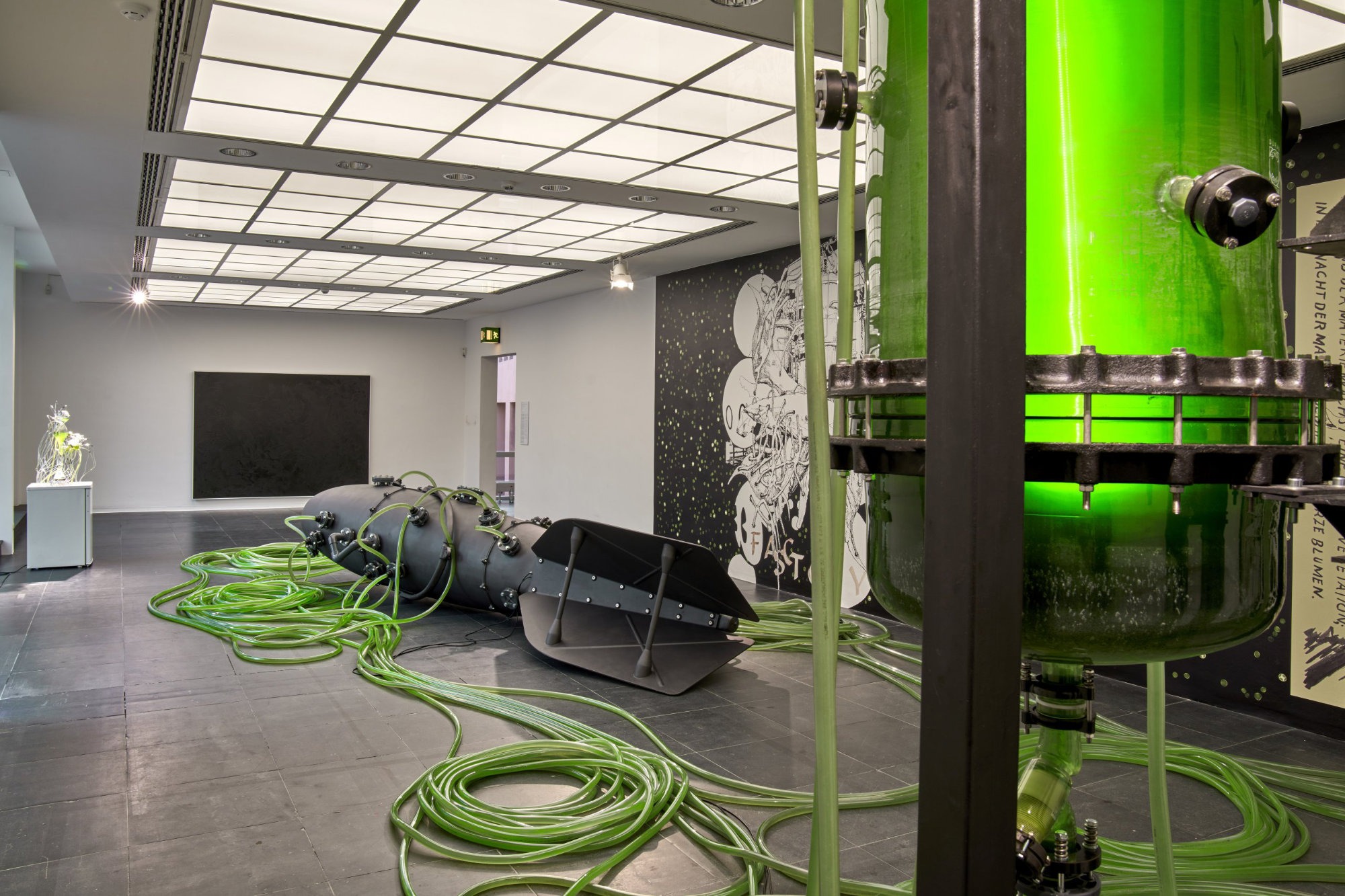
Thomas Feuerstein
Ausstellungsansicht Frankfurter Kunstverein 2021 mit den Werken „Hydra”, „Green Hydra”, „Green Blood” und „Harvest“ (2021)
2021
Mit freundlicher Unterstützung von Muffathalle München
Photographer: Norbert Miguletz
©Frankfurter Kunstverein
Courtesy: the artist and Galerie Elisabeth & Klaus Thoman
Ausstellungsansicht Frankfurter Kunstverein 2021 mit den Werken „Hydra”, „Green Hydra”, „Green Blood” und „Harvest“ (2021)
2021
Mit freundlicher Unterstützung von Muffathalle München
Photographer: Norbert Miguletz
©Frankfurter Kunstverein
Courtesy: the artist and Galerie Elisabeth & Klaus Thoman
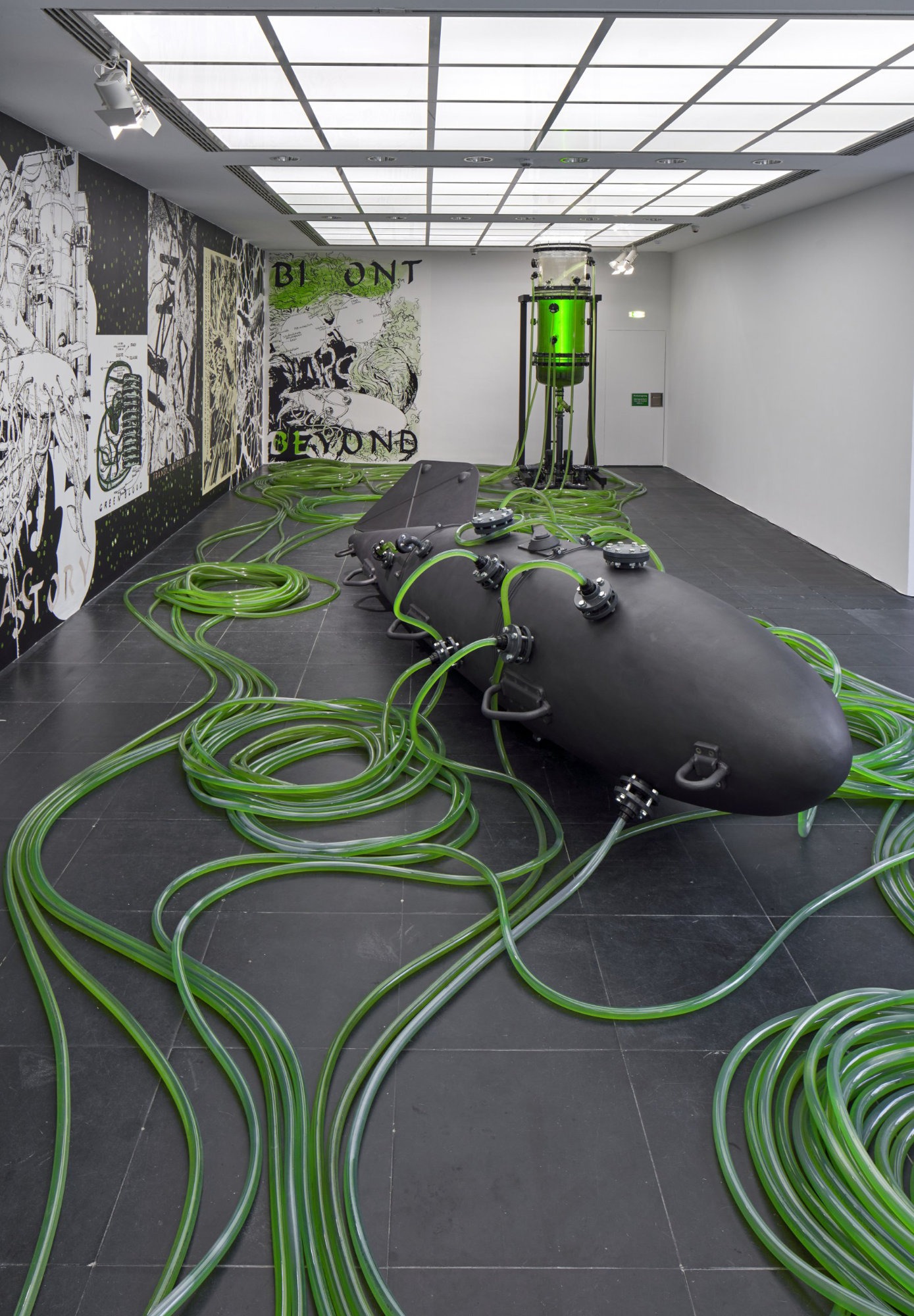
Thomas Feuerstein
Ausstellungsansicht Frankfurter Kunstverein 2021 mit den Werken „Hydra”, „Green Hydra”, „Green Blood” und „Harvest“ (2021)
2021
Mit freundlicher Unterstützung von Muffathalle München
Photographer: Norbert Miguletz
©Frankfurter Kunstverein
Courtesy: the artist and Galerie Elisabeth & Klaus Thoman
Ausstellungsansicht Frankfurter Kunstverein 2021 mit den Werken „Hydra”, „Green Hydra”, „Green Blood” und „Harvest“ (2021)
2021
Mit freundlicher Unterstützung von Muffathalle München
Photographer: Norbert Miguletz
©Frankfurter Kunstverein
Courtesy: the artist and Galerie Elisabeth & Klaus Thoman
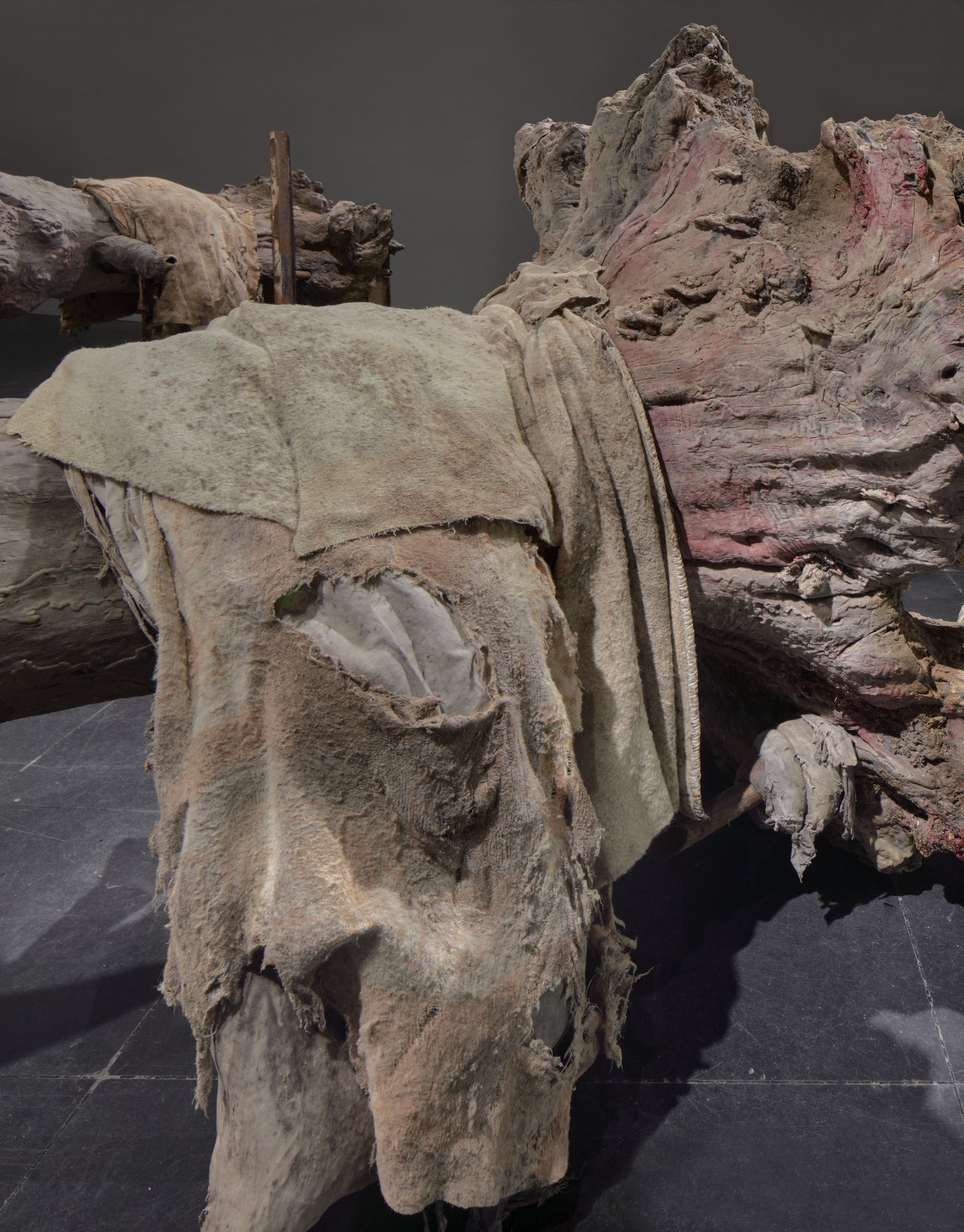
Berlinde De Bruyckere
Embalmed Twins I und II
2017
Ausstellungsansicht Frankfurter Kunstverein 2021
Photographer: Norbert Miguletz
©Frankfurter Kunstverein
Courtesy: the artist and Hauser & Wirth
Embalmed Twins I und II
2017
Ausstellungsansicht Frankfurter Kunstverein 2021
Photographer: Norbert Miguletz
©Frankfurter Kunstverein
Courtesy: the artist and Hauser & Wirth
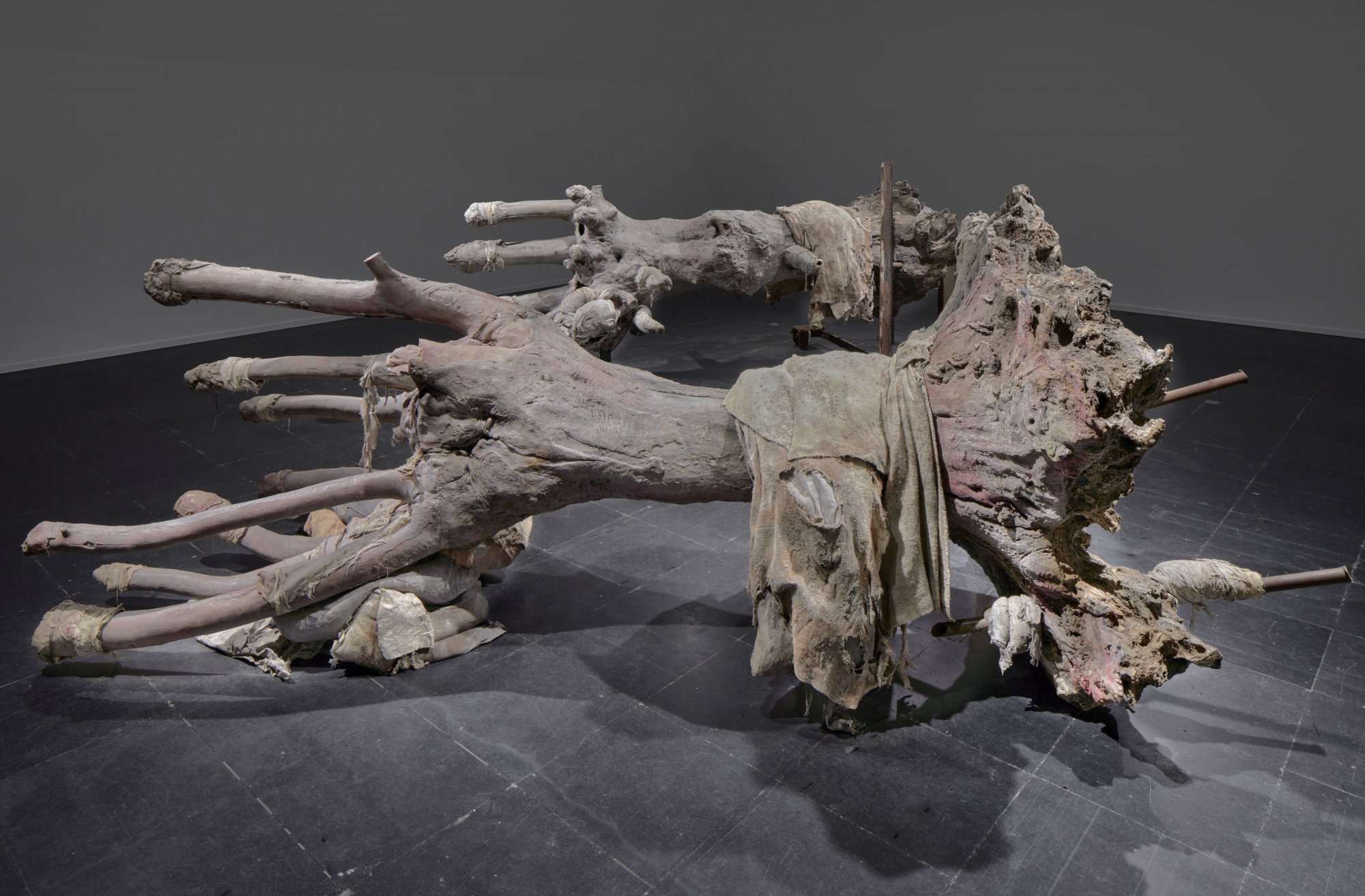
Berlinde De Bruyckere
Embalmed Twins I und II
2017
Ausstellungsansicht Frankfurter Kunstverein 2021
Photographer: Norbert Miguletz
©Frankfurter Kunstverein
Courtesy: the artist and Hauser & Wirth
Embalmed Twins I und II
2017
Ausstellungsansicht Frankfurter Kunstverein 2021
Photographer: Norbert Miguletz
©Frankfurter Kunstverein
Courtesy: the artist and Hauser & Wirth
With Berlinde De Bruyckere, Thomas Feuerstein, Marshmallow Laser Feast, Abel Rodríguez, Diana Scherer, Nicola Toffolini, Forschungszentrum Jülich, Pflanzensoziologisches Institut
For over ten years, scientists have collected new evidence on plants fostering new interpretations on the so-called intelligence of plants. Who are the fellow creatures that make up 85% of the organisms on our planet? And is it time for us humans to improve our coexistence with them, not least because our survival depends on them?
Plants, international researchers now believe, have an inherent form of intelligence unique to their species. And, like animals and humans, they have a drive to exist, which is why they engage in complex, increasingly explored strategies of interaction with their environment and other species. What biologists are discovering about the capabilities of plants is helping to revise our overarching notion of life. Increasingly, there is a need to rethink even our self-understanding as humans, and to shift our awareness towards being part of a system of interdependence.
One interpretation of intelligence is the ability to process information efficiently and to respond to environmental conditions with adaptation. Is that enough to label the adaptability of plants with intelligence? In the current debate about this attribution, the application of linguistic descriptions from the human context to plant life has become a central dispute.
Without the achievements of scientific findings that have emerged in numerous faculties in recent years, new considerations could not have led to the turn that is currently taking place. With technically supported imaging procedures on living beings, we now understand interrelationships differently. What conclusions the various faculties and interpreters in the current social debate draw from the existing database, depends on the respective questions they argue from.
The objectivity of scientific mathematical understanding is a guarantee for a rational penetration of evidences and at the same time allows us to maintain an emotional distance. At the same time, however, this methodology might also risk to separate us from the feeling of existing as part of a whole.
The Frankfurter Kunstverein follows the conviction that a meaningful cross-fertilization between science and art is central to society. As a place of public encounter for different experts, including artists, complex factual knowledge can be presented and placed in larger contexts. Together, natural sciences, philosophy and the arts can combine knowledge to discuss the search for a future direction of social, political and economic life.
With the exhibition “The Intelligence of Plants”, we present artists who demonstrate this changed sensibility towards fellow plant life. These approaches are representative of a new awareness that all life is interconnected.
For over ten years, scientists have collected new evidence on plants fostering new interpretations on the so-called intelligence of plants. Who are the fellow creatures that make up 85% of the organisms on our planet? And is it time for us humans to improve our coexistence with them, not least because our survival depends on them?
Plants, international researchers now believe, have an inherent form of intelligence unique to their species. And, like animals and humans, they have a drive to exist, which is why they engage in complex, increasingly explored strategies of interaction with their environment and other species. What biologists are discovering about the capabilities of plants is helping to revise our overarching notion of life. Increasingly, there is a need to rethink even our self-understanding as humans, and to shift our awareness towards being part of a system of interdependence.
One interpretation of intelligence is the ability to process information efficiently and to respond to environmental conditions with adaptation. Is that enough to label the adaptability of plants with intelligence? In the current debate about this attribution, the application of linguistic descriptions from the human context to plant life has become a central dispute.
Without the achievements of scientific findings that have emerged in numerous faculties in recent years, new considerations could not have led to the turn that is currently taking place. With technically supported imaging procedures on living beings, we now understand interrelationships differently. What conclusions the various faculties and interpreters in the current social debate draw from the existing database, depends on the respective questions they argue from.
The objectivity of scientific mathematical understanding is a guarantee for a rational penetration of evidences and at the same time allows us to maintain an emotional distance. At the same time, however, this methodology might also risk to separate us from the feeling of existing as part of a whole.
The Frankfurter Kunstverein follows the conviction that a meaningful cross-fertilization between science and art is central to society. As a place of public encounter for different experts, including artists, complex factual knowledge can be presented and placed in larger contexts. Together, natural sciences, philosophy and the arts can combine knowledge to discuss the search for a future direction of social, political and economic life.
With the exhibition “The Intelligence of Plants”, we present artists who demonstrate this changed sensibility towards fellow plant life. These approaches are representative of a new awareness that all life is interconnected.
